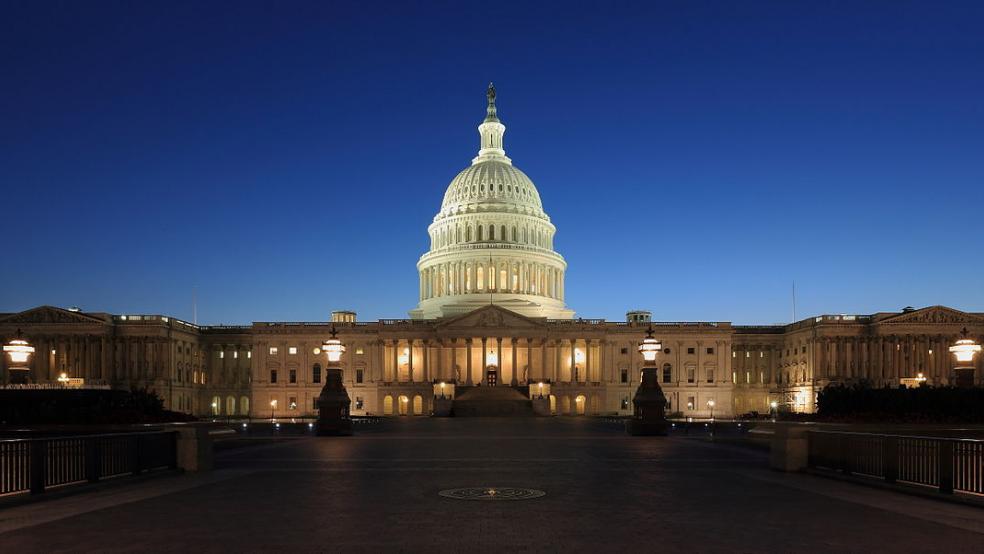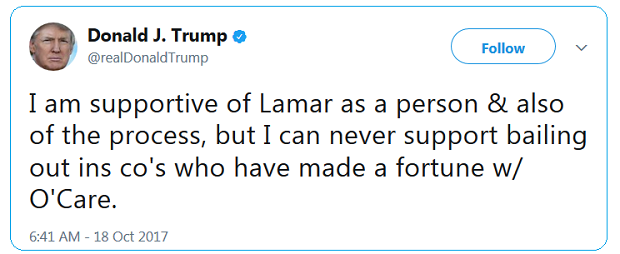Deal or no deal? We warned yesterday that the bipartisan Senate agreement to stabilize Obamacare wasn’t a sure thing, but the questions about its viability have only multiplied since then as President Trump has injected additional confusion into the negotiations. After initially announcing his support for the deal negotiated by Sens. Lamar Alexander (R-TN) and Patty Murray (D-WA), President Trump on Wednesday seemed to send a very different signal, tweeting:
Trump’s confusing turn came after conservatives “flooded the White House with concerned calls and messages Tuesday night,” CNN reported. Conservative groups including FreedomWorks and Club for Growth say they oppose the deal.
House Speaker Paul Ryan also expressed opposition to the deal as currently written, and Sen. Orrin Hatch (R-UT) also came out against it, while Sen. John Thune reportedly said the fix has “stalled out.”
But has it? Alexander tweeted that his agreement includes “strong language” to make sure that the government’s subsidy payments benefit consumers and not insurance companies and that he’ll work with Trump “to see if we can make it even stronger.” Meanwhile, other senators are lining up to co-sponsor the bill or floating changes to it.
The bottom line: Right now, the prospects of a deal are clouded by confusion over Trump’s position. “For both sides, the president’s conflicting signals have created a chaotic situation where even some of Trump’s aides have found themselves scrambling to keep up with the latest developments,” The Washington Post reported. Even if Alexander and Murray can win enough votes to pass the bill, it’s not clear if Ryan or Senate Majority Leader Mitch McConnell will allow a vote. “It would be all but impossible for Republicans lawmakers to support the deal — let alone bring it up for a vote in the House or Senate — without Trump's endorsement,” Politico’s Jennifer Haberkorn says.
Where it might all end up: Rick Weissenstein, an analyst at Cowen Washington Research Group, said that while the bill could be delayed, it could also end up being included in a larger funding measure at the end of the year, according to Business Insider. “In December, the government will run out of money, and no bill to keep it funded can pass without Democratic votes,” The New York Times reports. “At that point, supporters of the Alexander-Murray measure can insist on its inclusion in any spending bill and threaten to shut down the government if they do not prevail.”






